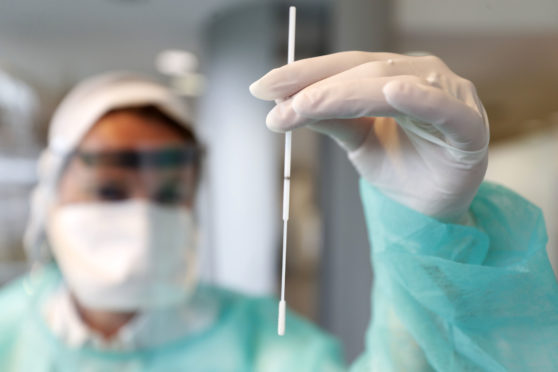
People recovering from mild-moderate levels of Covid-19 are struggling for weeks with symptoms, health charities have warned.
Asthma UK and the British Lung Foundation fear their initial findings mean there is not enough care and support for sufferers who were not hospitalised with the illness.
The charities are building up a snapshot of the impact of the coronavirus through an ongoing survey which has so far been filled in by almost 1,000 people. More than 800 people who answered the survey said they had dealt with the illness at home.
Breathing and sleep problems through to changes in mood, anxiety or depression are among the new symptoms troubling the former Covid-19 sufferers on a daily basis.
Alison Cook, of Asthma UK and the British Lung Foundation, believes there is now a risk of “a huge unmet need” being created if the Government and NHS do not support those with post-Covid respiratory complications.
Breathing problems was named by 90% of those questioned as their top symptom, along with 64% who said they now suffer from extreme tiredness.
Sleep problems, a cough, changes in mood, anxiety or depression were each named by 22% as a major issue.
The charities – which have set up an information hub at post-covid.org.uk and a helpline on 0300 222 5942 – have written to England’s chief medical officer, Professor Chris Whitty, with their concerns.
Pam Parry, a nurse on the helpline, said she has spoken to many people in their 30s-50s, who were very fit and healthy but are now “really struggling”.
She said: “Many are debilitated by breathlessness, chest pains and fatigue, with the majority feeling the effects 8-12 weeks after Covid. Lots of people are very distressed.”
It could be weeks or months until they feel back to normal, she suggested.
One caller found that “even small things” like vacuuming can trigger symptoms, adding: “I never expected it would affect me like this and it’s a huge emotional stress, not knowing what will happen or when I will feel better.”
The findings come as research from the Chartered Society of Physiotherapy (CSP) suggests tens of thousands of Covid-19 patients who were taken to hospital may need ongoing rehabilitation for symptoms such as breathlessness and fatigue.
The CSP said analysis of figures from across the four nations indicates that of 48,448 survivors who were taken to hospital in the UK with Covid-19 up until May 21, 29,845 are likely to require some level of rehabilitation on discharge.
Ms Cook said: “We know the impact respiratory symptoms, such as breathlessness, can have on someone’s day-to-day life – and the right support can make all the difference.
“Post-Covid is uncharted territory for everyone – we must work together to tackle it and ensure no-one is left behind.”
She urged anyone who has been affected by the lingering symptoms to fill out the survey.

Enjoy the convenience of having The Sunday Post delivered as a digital ePaper straight to your smartphone, tablet or computer.
Subscribe for only £5.49 a month and enjoy all the benefits of the printed paper as a digital replica.
Subscribe